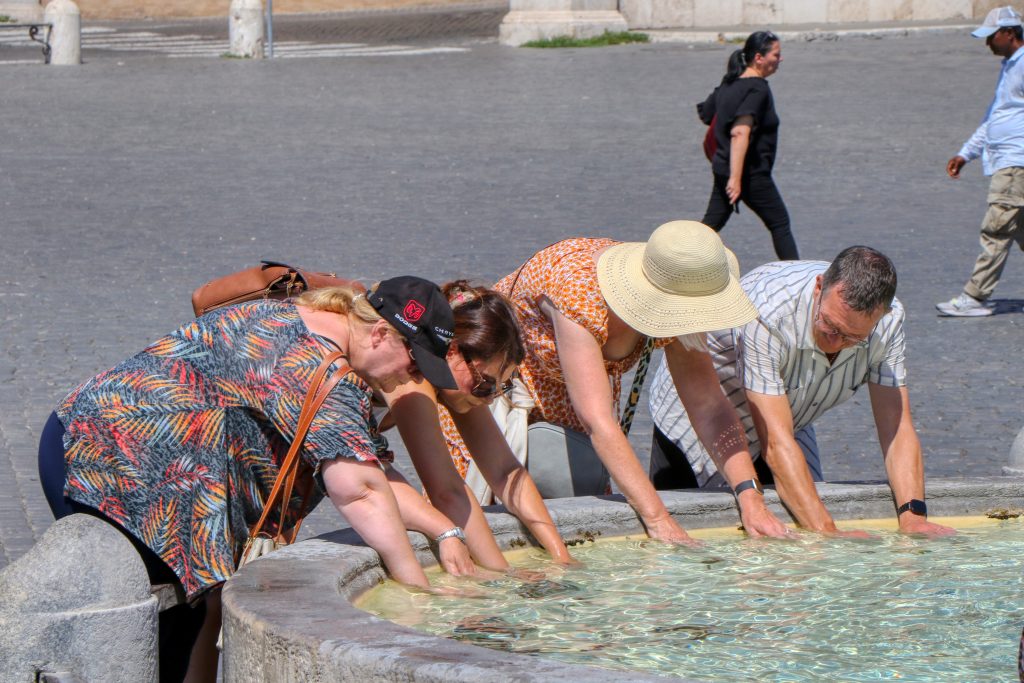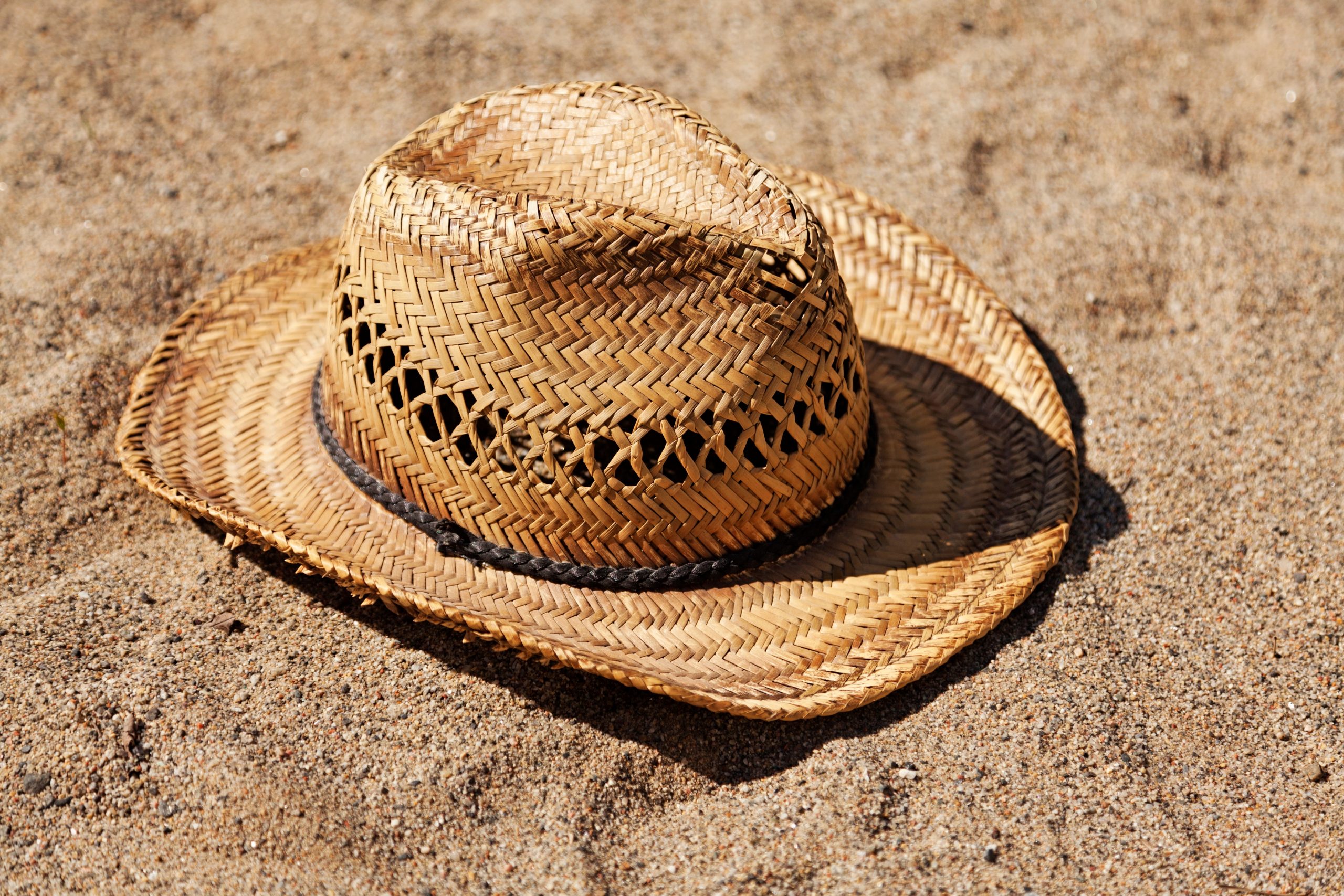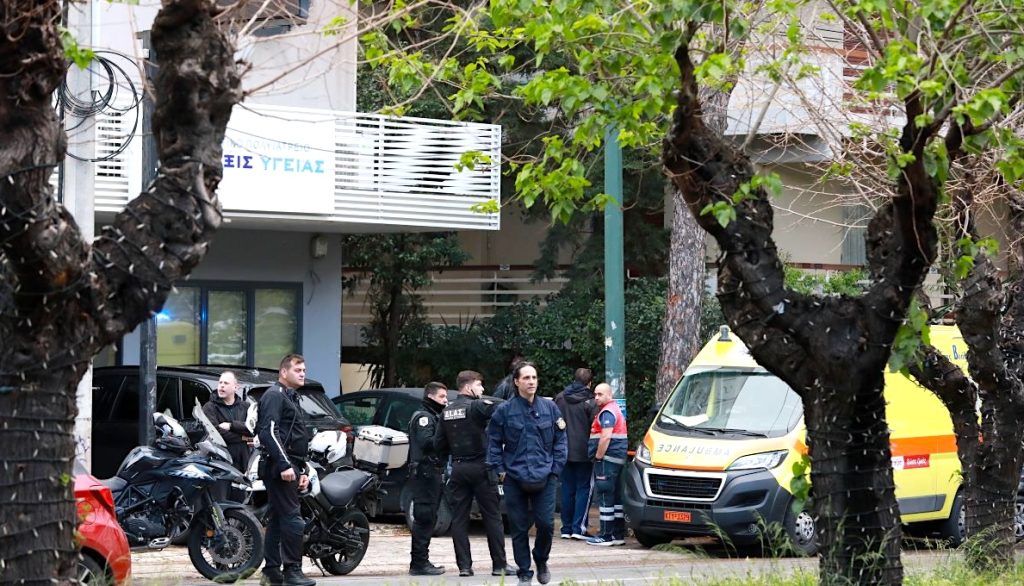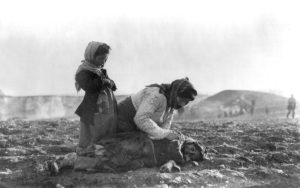Greece has been the subject of much media commotion over these past two weeks and not of the good kind. Foreigners looking for a taste of Mediterranean bliss have found themselves exposed to a heatwave or two, as temperatures have soared into the mid-40s in what is the earliest heatwave in Greek history.
In the 20th century, we never had a heatwave before June 19. We have had several in the 21st century, but none before June 15,” the Chief Meteorologist at the Hellenic National Meteorological Service (ΕΜΥ) told Greek media.
The death of celebrated BBC host Dr. Michael Mosley, who was last seen going for a walk on the island of Symi in the sweltering heat earlier this month, catapulted the country into the international spotlight. In a span of just 11 days, four more tourists, all last seen setting off on a hike on different Greek islands, have been found dead after disappearing, while others remain missing despite week-long search operations.
Speaking to Reuters, Petros Vasilakis, Head of the Police Press Office for the southern Aegean, commented on what all the disappearances have in common: “They all went for a hike amid high temperatures.”
High temps affect decision making
This unfortunate string of events has prompted scientists to make public health announcements, reminding us how extreme heat can impact the brain as much as the body.
Experts explain that the brain carries out all its functions within a narrow range of temperatures, which is sensitive to change. When the internal thermometer starts to rise, blood flow to the brain decreases, which causes confusion, limits risk perception and affects decision-making, among other things.
Kim Meidenbauer, a neuroscientist at Washington State University, told CNN, “You’re not just talking about potentially getting a little bit too warm and maybe having a sunburn [but] about potentially life-threatening (situations), like making poor decisions, having your judgment clouded.”
As a result, the ability to make even simple-sounding decisions, like which path to take on a hike, can be impaired–with potentially fatal results, as the events of the last fortnight have shown.
All the tourists who disappeared have been elderly or middle-aged, age groups that are especially vulnerable to the effects of high temperatures.
Tourists don’t do their homework to prepare for a heatwave
While the recent events are unequivocally tragic, they do raise the question of how well foreigners prepare before traveling to Greece.
Greece is known for its sunny and hot climate—it’s part of the country’s charm, after all. Heat waves are not uncommon, either, though they usually occur later on in the summer. So packing a hat would seem like a no-brainer.
And yet authorities on the islands have commented on how tourists walk through the town and go on hikes without anything to protect themselves from the sun.
During the search efforts for the missing 74-year-old Dutch tourist, Dimitris Kalantzis, head of the Samos rescue team, described travelers starting the hiking trail at midday in extreme temperatures with “no hat, no sunglasses and no water.”
Tourists also often overestimate their abilities. Foreigners from cooler climates may think the sun and heat in Greece will be comparable to what they would encounter back home, and that going on a hike midday on a Greek island with minimal shade provided by the Aegean flora will pose the same level of risk as it would on a domestic adventure.
Greece also has a part to play
There are always two sides to a story, however. Even though it is obviously vital for foreigners to properly prepare before travelling to Greece (or any other destination, for that matter), there are several things a top Mediterranean tourist destination like Greece can do to prevent further tragedies from occurring—especially since it expects to welcome a record 35 million tourists this summer season.
Tourists on Symi at the time Dr. Mosley’s body was found expressed their disappointment to British media, saying that no warnings or guidelines had been issued by the local authorities regarding what to do during the heat wave.
Indeed, even though it may seem like common sense to locals not to set off on a long walk in peak heat, foreigners who have not experienced such conditions before may not fully grasp just how dangerous it is.
As a result, information regarding safety measures, guidelines, emergency protocols etc. must be made readily available to tourists, however obvious it may seem to people who live here.
Maintaining the various hiking trails around different islands better, and providing improved signage, would also help prevent people from getting lost. Symi Mayor Eleftherios Papakalodoukas told the Guardian that CCTV cameras and better trail lighting were also needed to prevent any future misfortunes. A town councilor on Chios also called for local groups who know the different trails and could undertake to make them safer for tourists to be given financial and technological support.
Kalantzis also suggests that local authorities could restrict access to hiking trails when temperatures are at their highest to limit exposure to dangerous situations.
Finally, naming a heatwave, like a storm, in an effort to drive home the gravity of the situation, could also be a solution. However, attempts to set up a system to do just that in recent years has yet to bear fruit.




